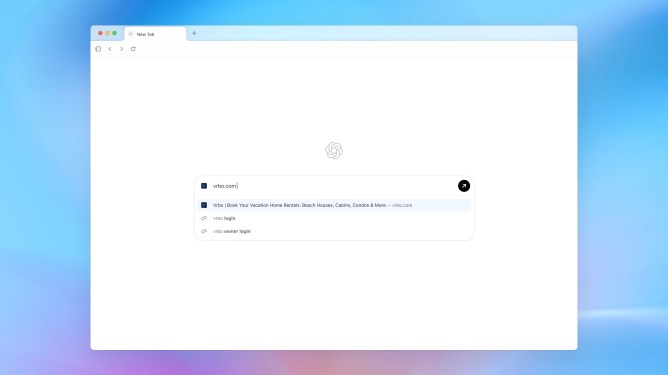OpenAI introduced its new AI browser called ChatGPT Atlas during a livestream event on Tuesday. This launch enters a market that already includes other AI browsers like The Browser Company’s Dia, Opera’s Neon, Perplexity’s Comet, and the General Catalyst-backed Strawberry. What makes OpenAI’s release particularly significant is its potential to reach up to 800 million weekly ChatGPT users. For the company, the browser is less about improving web browsing and more about keeping ChatGPT as the central focus for users.
Although Atlas is currently only available on Mac, the company is actively developing versions for Windows, iOS, and Android. These are all platforms where ChatGPT is already present. Unlike some of its competitors, OpenAI has made the browser available to all users without an invite-only system. The core idea behind the browser is to encourage users to think of ChatGPT as their primary tool for search and answers, positioning it as an alternative to Google.
The fundamental concept shared by all AI browsers is to change how we search. Instead of typing a traditional search query and sifting through pages of links, you type a question into the address bar and receive an answer directly from an AI chatbot. OpenAI, along with other browser makers, believes Atlas will redefine web browsing. As Sam Altman stated at the launch, AI presents a once-in-a-decade opportunity to rethink the browser’s purpose and functionality. He noted that while tabs were a great innovation, there has been little fundamental change since their introduction.
Tech industry leaders have described AI as a major platform shift. However, on consumer devices, desktop and mobile operating systems remain the primary way people access AI tools. OpenAI aims to control the distribution channels for ChatGPT as much as possible. This strategy was highlighted last week when Meta changed its terms to block third-party chatbots, including ChatGPT and Perplexity, from its WhatsApp platform, which has over three billion monthly users. This move demonstrates how platform owners can restrict distribution at any time.
For OpenAI, Atlas provides a chance to integrate ChatGPT and its other products more deeply than is possible on other platforms. Users can directly reference multiple websites without needing to post links into ChatGPT. The company has already utilized a headless browser for its AI agent, and with Atlas, it gains more control over such features. A writing assistant that appears in text fields has already been integrated. Furthermore, the company is working on integrating its App SDK to improve the discoverability of other apps within ChatGPT.
The memory feature is another key element for power users. This feature considers both your browsing history and your ChatGPT history to provide answers with full context. You could ask, “What was the work document I had my presentation plan on?” and ChatGPT would retrieve the correct link. As you spend more time in the browser, ChatGPT gathers more context about you. OpenAI could then use this contextual information with other applications once it widely rolls out its Sign in with ChatGPT feature.
Both the default ChatGPT address bar and the memory feature are designed to provide OpenAI with more data about you. This data allows the company to better understand your context and, in turn, serve you more tailored products. The browser does not include traditional features like an ad-blocker, VPN, reading mode, or translation tool to enhance the browsing experience on a website. Instead, you must ask ChatGPT to summarize content or find something on a page. This approach seems designed to give ChatGPT more context rather than letting you consume content directly on the webpage.
In contrast, The Browser Company’s Arc introduced innovative ideas to improve the browsing experience, such as using AI to rename downloaded files or customize a webpage by removing unwanted elements. The result of OpenAI’s efforts is more than just a browser; it is a broader canvas for ChatGPT itself. This vision was outlined by OpenAI’s CEO of Applications, Fidji Simo. She explained that based on feedback from hundreds of millions of users, it is clear ChatGPT must evolve beyond a simple chatbot. Over time, the goal is for ChatGPT to become the operating system for your life, a connected hub that helps manage your daily tasks and long-term goals.
The major challenge for OpenAI is convincing people whose default browser is Chrome, Safari, or Edge to switch to Atlas. The company needs to capture market share from Google, Apple, and Microsoft. While the number of people using ChatGPT continues to grow steadily, it remains unclear if the average user is ready to merge their browser and chatbot experiences. Chrome succeeded because it was fast and made Google queries the default starting point for using the internet. ChatGPT Atlas is perfect for users who have already replaced Google with ChatGPT, but for OpenAI to replace Chrome, it must convince billions of users to adopt that same habit.

